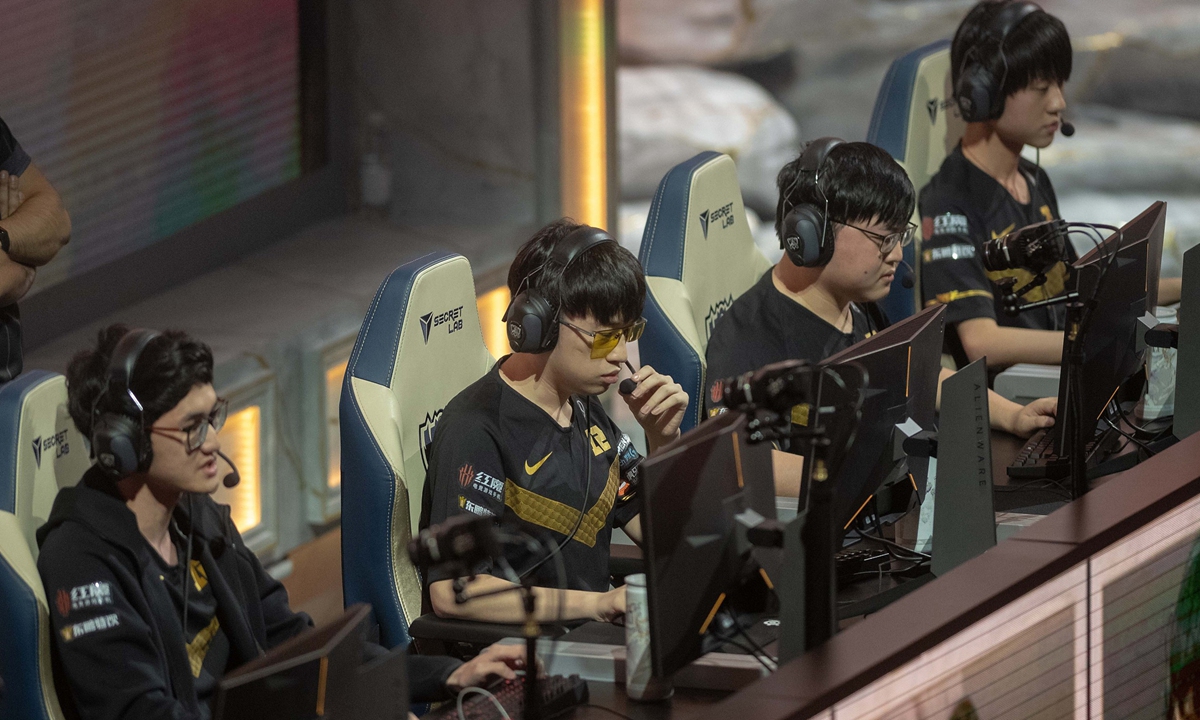China’s regulatory actions against online gaming hit $22.44b esports industry
Regulatory actions against online gaming hit $22.44b esports industry

Gamers compete in an esports tournament. Photo: VCG
China's recent regulatory actions to limit online gaming for minors may inflict pressure on the burgeoning esports market that's worth 145 billion yuan ($22.44 billion), as companies also move to raise the age for esports players in line with the latest restrictions.
However, in line with China's recent campaign to crack down on illegal activities in the internet sector, the latest regulatory actions in the online gaming sector will also help protect minors and ensure sustainable development, industry practitioners said.
After Chinese gamers under 18 years old were only allowed to play video games for three hours per week and during holidays, a new rule saying that some professional esports players must be adults is affecting some young competitors.
Chinese regulators have barred minors from participating in a premiere e-sports competition — the Honor of Kings King Pro League in China, according to a notice issued by the competition's organizer on Wednesday.
Esports industry practitioners told the Global Times that the latest regulations on the gaming sector have a greater influence on very young esports players, with the player selection rules and operating rules facing major changes.
"The average golden age of esports players is around 18 or younger, depending on the game they specialize in," an industry practitioner who preferred to be anonymous told the Global Times on Thursday.
She said that younger players usually have faster reaction and more flexible fingers, and that's why most esports clubs in China establish youth training camps to identify and produce players with great potential.
"Because of the suddenly issued regulations, some minor players had to suspend their training," said the practitioner, adding that the operating rules of the esports industry such as the selection mechanism of players will be changed significantly.
"However, the regulations are not having a negative impact [in the long run], instead, they help build the industry standard," she said.
The esports industry, which attracts about 488 million game lovers in China, saw skyrocketing growth in recent years, with revenue rising from 94.73 billion yuan in 2019 to 136.56 billion yuan in 2020, jumping by 44 percent.
Video games have long been criticized by parents and teachers in China, who are concerned about teenagers' addiction, as some spend too much money and time on these games.
That has prompted scrutiny of Chinese authorities, who have intensified regulations to protect teenagers. The regulations on online gaming followed sweeping measures by regulators to reduce extra curriculum burdens on students by banning for-profit educational firms from teaching curriculum knowledge.
The strengthened rules in the gaming sector initially sent stocks in the sector sharply lower, but some recouped part of their losses on the stock market. On Thursday, Chinese game giant Tencent Holdings saw its shares rise 1.56 percent.

